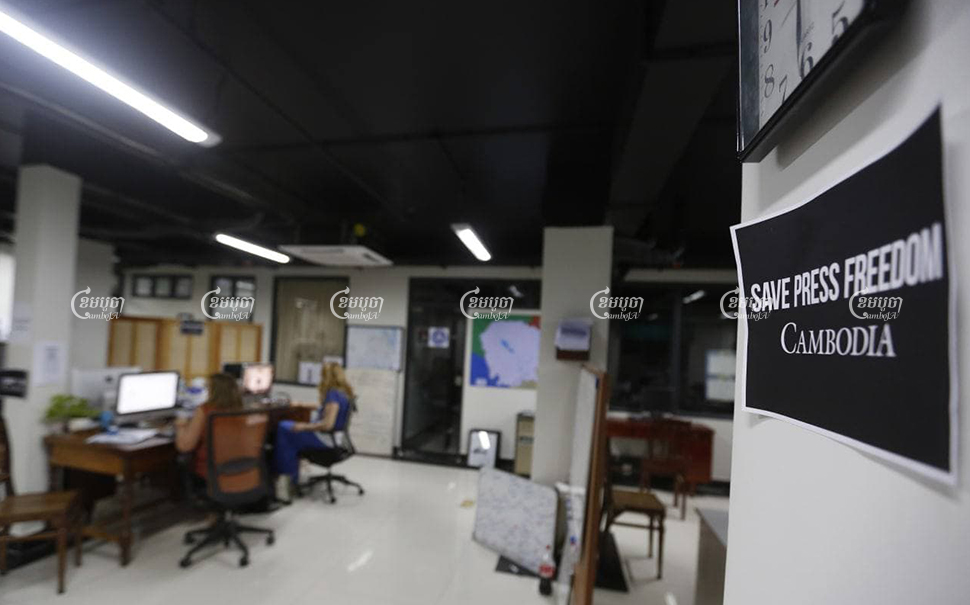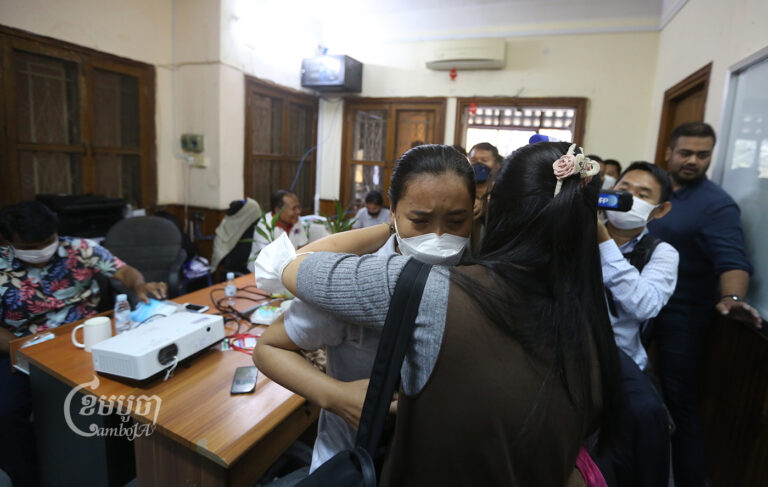Former Cambodia Daily reporters Zsombor Peter and Aun Pheap have called for what they describe as “the bogus charge” of incitement levelled against them in connection to their reporting on the 2017 commune elections to be dismissed.
Their call came after Tboung Khmum province’s Regional Court of Appeal heard the case against the pair on Thursday December 16. The hearing followed the Ratanakkiri prosecutor’s office appeal against an earlier decision by the provincial judge to drop charges against the two reporters.
The verdict will be announced on January 4, according to Kol Bun, the court of appeal’s regional prosecutor. Bun declined to share details about what evidence was presented during the trial against the two reporters.
“I was already told [at the hearing], but I can’t repeat it because I am afraid to be wrong when I repeat it,” he said. “I can’t remember everything, but I asked the judge to consider it in accordance with law.”
The two reporters have won accolades for their investigative reporting on Cambodia’s rampant deforestation. They were in Ratanakkiri reporting on a story before the 2017 commune election, when a local commune chief, Ramam Yout, objected to their line of questioning during an interview. He proceeded to file a complaint in 2017, which was withdrawn sometime last year.
Peter told CamboJA via social media that he maintained the charge was wrong and said that the lower court had been right to drop the bogus charges against him and Pheap last year.
“There isn’t a scrap of evidence to back them up because they were very obviously fabricated,” he said. “I hope the appeals court also makes the right decision by dismissing this case.”
His colleague Pheap told CamboJA that the ongoing lawsuit was an example of threats against the media in Cambodia.
“If the court upholds [the lower court decision], I am not confident to return to Cambodia, because I don’t believe the court,” he said. “Because as I had said it is their pretext following the current sanctions by the United States, and they [the government] want to ease the situation.”
Ra Borandy, the former Ratanakkiri provincial deputy prosecutor who filed the appeal against the initial judge’s decision, declined to comment.
“That story happened a long time ago, I can’t remember,” he said. “Because I already moved out [of the Ratanakkiri court], so I can’t remember.”
Sek Sophorn, the defense lawyer representing both reporters, said that he hoped the court of appeal would uphold the provincial court’s decision to drop the charges.
“We did not see any evidence, and what they have presented is the same as in the previous court,” he said.
Ith Sothoeuth, media director at the Cambodian Center for Independent Media, called on the court to follow the provincial court’s decision.
“The continuing legal case against two former reporters of the Cambodia Daily is an image to threaten journalists and press freedom as well, because [in] the previous case the charge was already dropped,” he said.
But Information Ministry spokesman Meas Sophorn said that journalists who have broken the law have to face the law.
“Law enforcement against journalists who have broken the law isn’t a threat,” he said.
Am Sam Ath, deputy director at rights group Licadho, said that local and international press freedom has declined in Cambodia, especially related to the intimidation, arrest and imprisonment of journalists.
“It is a message to threaten and break their spirits [so] that some journalists cannot fulfill their profession due to fear,” he said.
“I have still seen restrictions on press freedom, because some lawsuits are still proceeding against journalists, and some are still in jail.”
In 2017, the Cambodia Daily was forced to shut down after refusing to pay an exorbitant tax bill, as part of a crackdown against independent media institutions that also targeted Radio Free Asia, the Phnom Penh Post and Voice of America.









